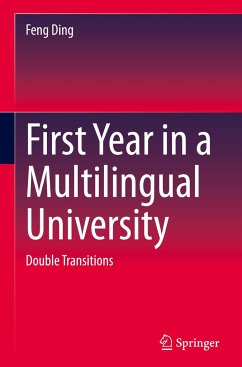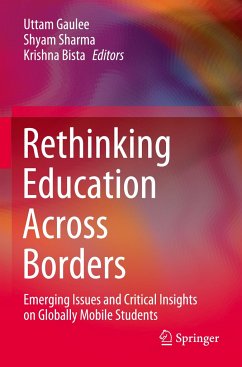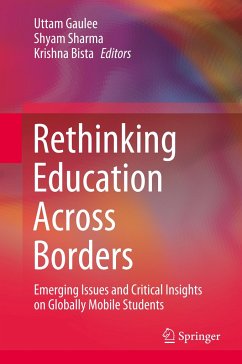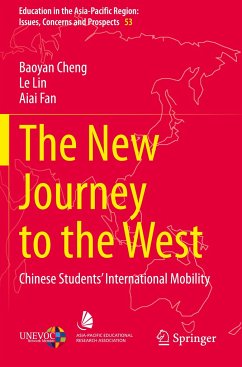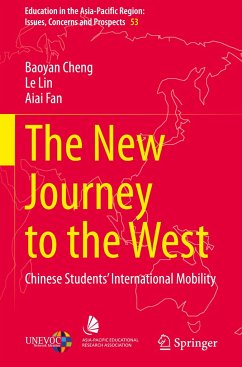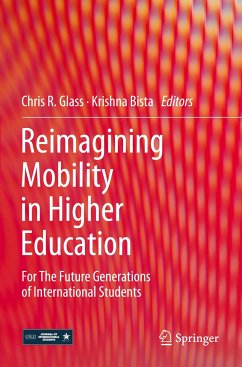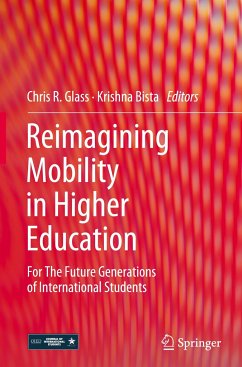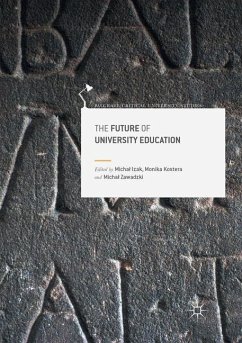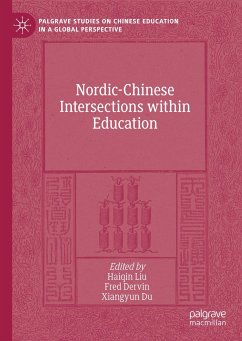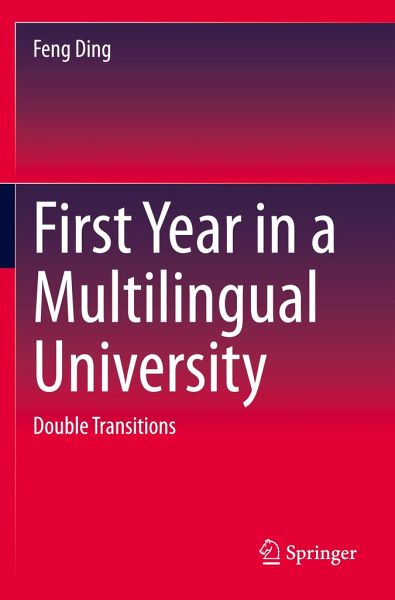
First Year in a Multilingual University
Double Transitions
Versandkostenfrei!
Versandfertig in 6-10 Tagen
76,99 €
inkl. MwSt.
Weitere Ausgaben:

PAYBACK Punkte
38 °P sammeln!
Although both school-university transitions and cross-border transitions have been widely explored, comparatively little research has been conducted on those students who undergo both transitions at the same time. This book reports on a longitudinal qualitative study investigating the major issues faced by nine Mainland Chinese students during their first year at a Hong Kong university from the perspective of learner autonomy. It argues that the school-university transition is especially challenging for students going through a cross-border transition at the same time, which usually involves a...
Although both school-university transitions and cross-border transitions have been widely explored, comparatively little research has been conducted on those students who undergo both transitions at the same time. This book reports on a longitudinal qualitative study investigating the major issues faced by nine Mainland Chinese students during their first year at a Hong Kong university from the perspective of learner autonomy. It argues that the school-university transition is especially challenging for students going through a cross-border transition at the same time, which usually involves a linguistic and cultural adjustment, and challenges their autonomy in three domains: managing their personal lives; academic learning; and English learning.
Adopting the perspective of autonomy enables us to better understand student transitions so that more appropriate support can be provided for this group. Given its scope, the book offers a valuable asset for educators at both the secondary and post-secondary levels, and underscores the need to help students bridge the gap between school and university, and thus advance along the continuum of autonomy more smoothly. It also has practical implications for students who are studying or intend to study abroad.
Adopting the perspective of autonomy enables us to better understand student transitions so that more appropriate support can be provided for this group. Given its scope, the book offers a valuable asset for educators at both the secondary and post-secondary levels, and underscores the need to help students bridge the gap between school and university, and thus advance along the continuum of autonomy more smoothly. It also has practical implications for students who are studying or intend to study abroad.





